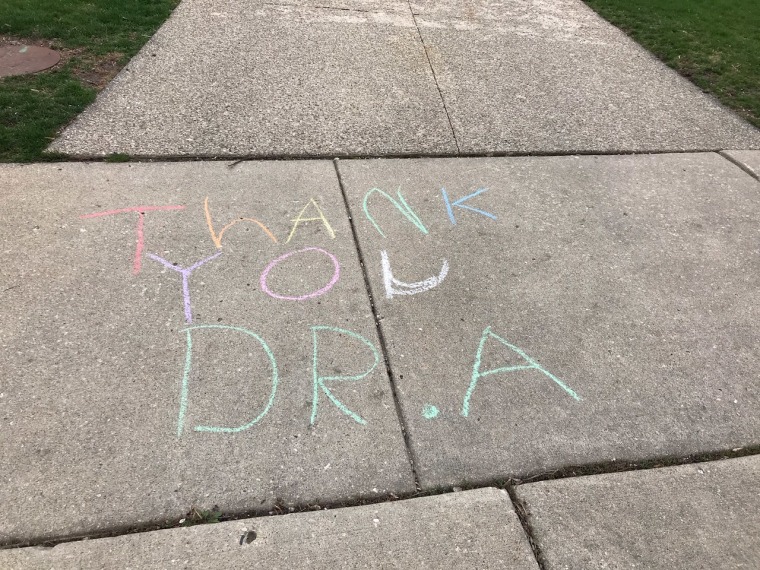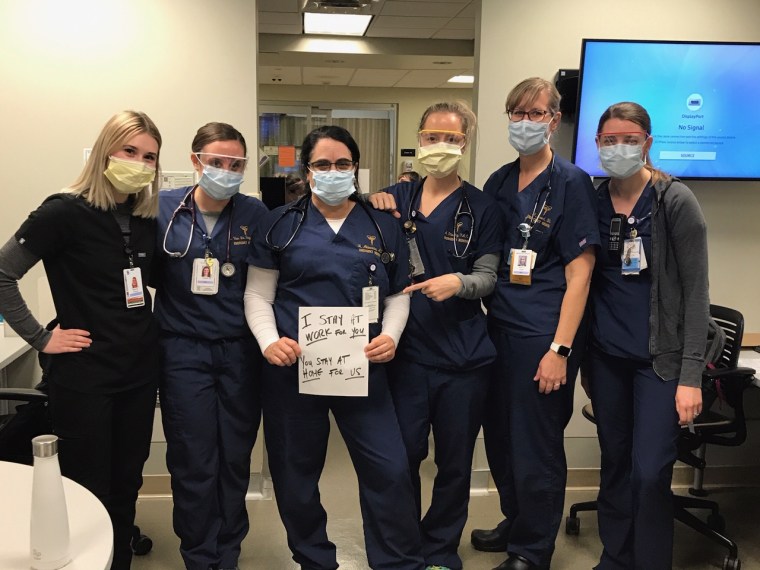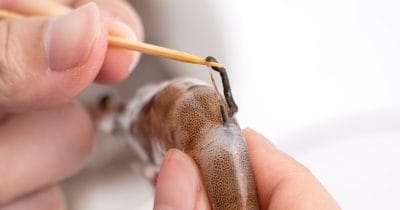
The training that very experienced doctors are going through to ensure they are properly prepared for the influx of COVID-19 patients is something none of the medical world envisaged having to do.
Medical staff who have been doing their job for decades, dealing with the most traumatic of injuries, are saying that nothing could prepare them for the horror and challenges they have faced during this crisis.
Dr. Halleh Akbarnia has been an emergency medicine doctor for nearly 20 years and thought she had seen it all, but treating patients during this global pandemic has been a unique experience.
“(Prior to the pandemic) we had been prepping for so long … There were a lot of different things we’d been talking about and we’d been seeing patients trickling in, knowing what we were seeing were positive patients,” the mom-of-two from Illinois told Today.

Dr. Akbarnia refers to the day she met one particular patient as her “first pandemic shift.” She wrote about the patient on her Facebook page saying her experience treating him “will fuel me until the day I hang up my stethoscope.”
She wrote: “I have been an Emergency Medicine Physician for almost 20 years. I have worked through numerous disasters, and I’m used to the daily grind of heart attacks, gunshots, strokes, flu, traumas, and more. It’s part of the course in my field.
“Yet nothing has made me feel the way I do about my ‘job’ as this pandemic has—that knot-in-the-pit–of-your-stomach sensation while heading into work.
“I met my patient, Mr. C, on my first real ‘pandemic’ shift, when what we were seeing that day was what we had been preparing for. He was classic in his presentation, his X-ray findings, his low oxygen levels…we just knew.
“And he was the nicest man I had met in a long time. Gasping for breath, he kept asking if we needed anything, and that it would all be okay. He told us he was a teacher but that he was learning so much from us, and how much he respected what we were doing. The opposite could not be more true.”
Dr. Akbarnia said the patient was placed on a ventilator and he nearly left them a few times but kept coming back.

“We fought hard to keep him with us. The patience and strength of my team that day, truly remarkable.”
Her colleague took over his treatment but Dr Akbarnia stayed close and watched his progress for the next 12 days. Thankfully he pulled through and Hella was able to meet her new friend again.
She said Mr C had been in isolation with no family allowed to visit. Meanwhile, his wife had been home alone in isolation too. When she entered his room she said there was a moment of recognition.
“He started to cry. He said, ‘I remember your eyes.’ And I started to cry…His strength, his kindness, his calming words to me meant everything. At that moment, my heart (which had been beating over 100 bpm since this pandemic began) finally slowed down.
“I sat down and we talked. I told him that while he is here, we are his family. He will always have a place in my heart. And whether he knows it or not, he will be my silent warrior and guide as I take care of every patient, COVID or not. He will fuel me until the day I hang up my stethoscope.”

It’s so important that we have this insight into the experiences of medical staff during this health crisis; they are the soldiers risking their lives on the frontline.
Medical staff are staying at work for us, so we need to stay at home for them. Please share to pay tribute to these amazing warriors and to spread this vital message.





